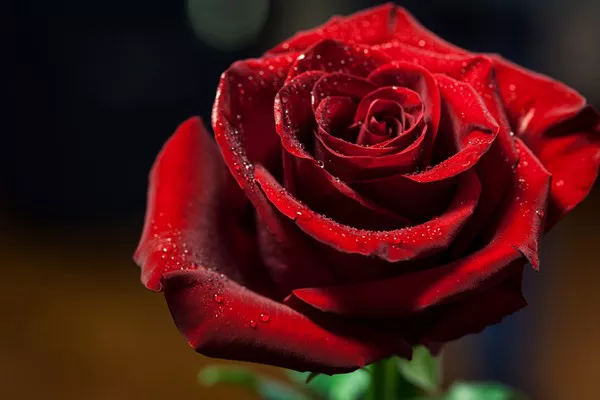Flowers have been cherished for centuries, celebrated for their beauty, symbolism, and the emotions they convey. Whether used in floral arrangements, gardens, or as gifts, flowers hold a special place in our hearts. In this comprehensive guide, we explore the 20 most popular flowers and delve into their meanings, care, and cultural significance.
1. Roses: The Undisputed Symbol of Love
Roses are the quintessential symbol of love and passion. With an array of colors each signifying different emotions, roses have become an iconic flower in literature, art, and culture.
2. Tulips: Elegance and Grace
Tulips, with their elegant, bell-shaped blooms, represent grace and elegance. They are often associated with perfect love and are a favorite in floral arrangements.
3. Daisies: Innocence and Purity
Daisies are a symbol of innocence and purity. With their cheerful appearance and simple charm, they brighten any garden or bouquet.
4. Lilies: Majestic and Elegant
Lilies are known for their regal appearance and are associated with majesty and honor. They are often used in religious ceremonies and weddings.
5. Orchids: Exotic Beauty
Orchids are admired for their exotic and unique beauty. They symbolize love, luxury, and refinement.
6. Sunflowers: Radiant Joy
Sunflowers are known for their vibrant yellow petals and represent happiness and positivity. They are a popular choice for adding cheer to any setting.
7. Peonies: Romance and Prosperity
Peonies are considered a symbol of romance and prosperity. Their lush, fragrant blooms make them a favorite in wedding bouquets.
8. Hydrangeas: Abundance and Gratitude
Hydrangeas are often associated with abundance and gratitude. Their large, clustered flowers are perfect for creating stunning floral arrangements.
9. Carnations: Versatile and Long-lasting
Carnations are versatile and long-lasting flowers that come in a variety of colors, each with its own meaning. They are popular for expressing love and admiration.
10. Gerbera Daisies: Cheerful and Vibrant
Gerbera daisies are known for their bright and cheerful appearance. They symbolize innocence and purity and are perfect for conveying joy.
11. Iris: Wisdom and Faith
The iris is associated with wisdom and faith. Its striking appearance and unique shape make it a favorite among flower enthusiasts.
12. Lavender: Serenity and Relaxation
Lavender, with its soothing fragrance, symbolizes serenity and relaxation. It is often used in aromatherapy and herbal remedies.
13. Lilacs: First Love
Lilacs are associated with first love and youthful innocence. Their fragrant blossoms are a delight to the senses.
14. Chrysanthemums: Loyalty and Friendship
Chrysanthemums represent loyalty and friendship. They are an integral part of many cultures’ celebrations and traditions.
15. Marigolds: Vibrant and Spiritual
Marigolds are vibrant and spiritual flowers. They are often used in religious ceremonies and symbolize passion and creativity.
16. Poinsettias: Christmas Tradition
Poinsettias are a Christmas tradition, symbolizing good cheer and success. Their red and green leaves are synonymous with the holiday season.
17. Sweet Peas: Delicate Pleasures
Sweet peas are delicate and fragrant flowers that represent delicate pleasures. They are often used in romantic bouquets.
18. Ranunculus: Radiant Charm
Ranunculus is known for its radiant charm and symbolizes attractiveness. Its layered petals add a touch of elegance to any arrangement.
19. Azaleas: Feminine Beauty
Azaleas are associated with feminine beauty and symbolize softness and fragility. They are a favorite in spring gardens.
20. Calla Lilies: Magnificent Elegance
Calla lilies exude magnificent elegance and are often used in weddings and formal occasions. They symbolize purity and devotion.
Conclusion
Flowers are not just beautiful ornaments of nature; they carry deep meanings, cultural significance, and play important roles in our lives. The 20 most popular flowers highlighted in this guide are just a glimpse into the vast world of botanical beauty and symbolism. Whether you’re a passionate gardener, a florist, or someone who simply appreciates the aesthetic and emotional value of flowers, exploring their diversity and significance can be a rewarding journey.


